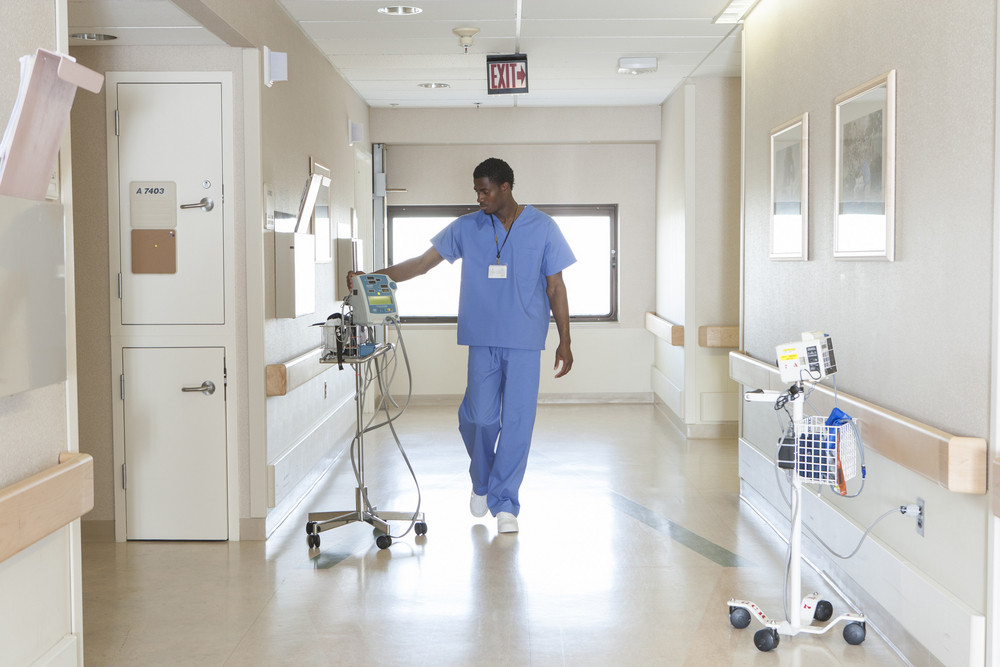Medical center cleaners are a vital part of the healthcare industry. They’re the people who ensure that patients, staff members, and visitors can enter a clean and safe environment. But there’s more to the story than you might think. Here are some things you might not know about medical center cleaners.
1. What Do Medical Center Cleaners Do?
Medical center cleaners are responsible for cleaning everything in a medical facility. That includes patient areas, exam rooms, operating rooms, among others. They also clean ventilators, suction machines, beds and bedpans, faucets, and equipment in hospitals’ operating rooms. They must wear protective gear such as gloves, goggles, or face masks to protect themselves against diseases. Additionally, they sterilize instruments used during surgery with antiseptics to prevent infection.
2. How Long Have Medical Center Cleaners Been Around?
While there is no clear-cut date, Dr. Semmelweis instigated a handwashing program in 1847, marking the beginning of medical cleaning. Over time, the profession has evolved, with cleaners now trained specifically as medical center cleaners instead of general janitors or housekeepers.
3. What Education and Training Do Medical Center Cleaners Need?
Although there is no formal education required for this occupation, employers need to train their cleaners to safely handle potentially hazardous materials such as bodily fluids. Most employers provide extensive training before allowing their employees to clean hospital rooms alone without supervision.
4. What Are Some Common Injuries Medical Center Cleaners Can Sustain?
Medical center cleaners can suffer injuries caused by sharp or blunt objects, such as needles or knives, during surgery if they are not wearing protective clothing and gloves. They can also be injured if a medical instrument falls on them after being used in surgery. It’s important for medical center cleaners to always wear protective clothing, including goggles and face masks, when cleaning up hazardous materials such as blood or bodily fluids.
5. What Are Some Common Health Hazards Medical Center Cleaners Face?
Like all healthcare workers, medical center cleaners must be careful about protecting themselves from disease when they clean rooms after surgery. While this may sound unusual, a medical center cleaner can become infected because of their work.
6. What Are Some Medical Center Cleaner Responsibilities?
Medical cleaning professionals are responsible for several operations, including:
- Healthcare cleaning services: This includes disinfecting medical equipment and instruments, washing walls and floors of hospital rooms, and disposing of soiled linen such as sheets and pillowcases used on patients.
- Hospital housekeeping services: This includes cleaning common areas of the hospital, such as lobbies, hallways, and elevators. Medical center cleaners may be involved in general housekeeping duties such as sterilizing faucet handles and paper towel dispensers, among others.
- Terminal cleaning operating rooms: This includes cleaning after surgery and before the next patient arrives. Medical center cleaners sterilize surgical instruments used in a procedure and remove any debris from the room.
7. What Kinds of Facilities Need Medical Center Cleaners?
Hospitals and medical centers of all sizes need medical center cleaning services to ensure that their facilities are sanitary, safe, and free from clutter. Medical centers must follow strict procedures when cleaning and disinfecting surgical equipment, beds and walls, and floors for inpatient rooms. As a result, employers should conduct extensive research before hiring a medical cleaning service.
8. What Kinds of Standards Are Expected From Professional Medical Center Cleaning Services?
Generally, medical center cleaning services must meet and adhere to all local, state, federal and industry regulations. Other healthcare standards include those from OSHA, EPA, and the CDC.
9. What Kinds of Equipment do Medical Center Cleaners Use?
Medical center cleaning professionals may use a variety of equipment and tools while on the job. For example, they can use general-purpose floor mops, microfiber pads, or brushes to clean floors and surfaces. They also use hospital-grade non-toxic quality disinfecting products to clean operating rooms, patient rooms, and medical equipment.
Medical center cleaning services play an essential role in maintaining safe and germ-free facilities that are vital to protecting patients, employees, and medical professionals. Healthcare facilities can benefit from the services of medical cleaning companies such as CareServe, which have years of experience in providing professional and reliable cleaning services to hospitals and clinics throughout Dallas, TX.


Recent Comments